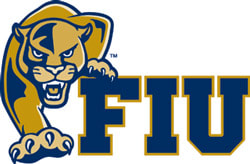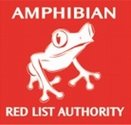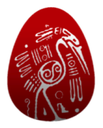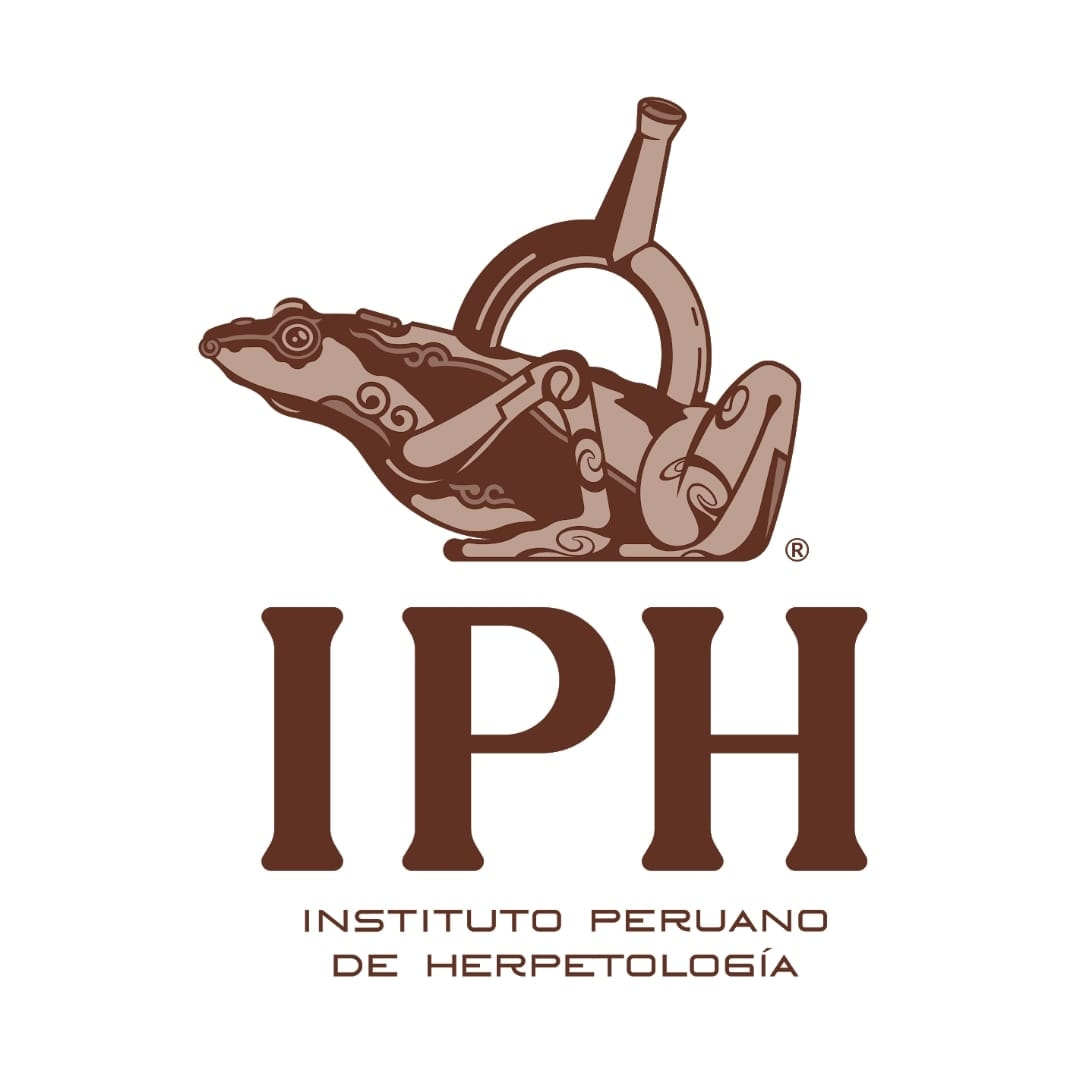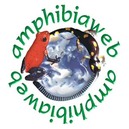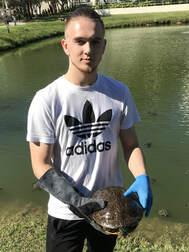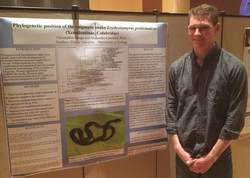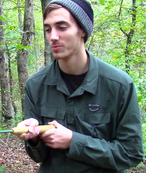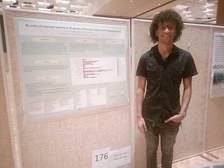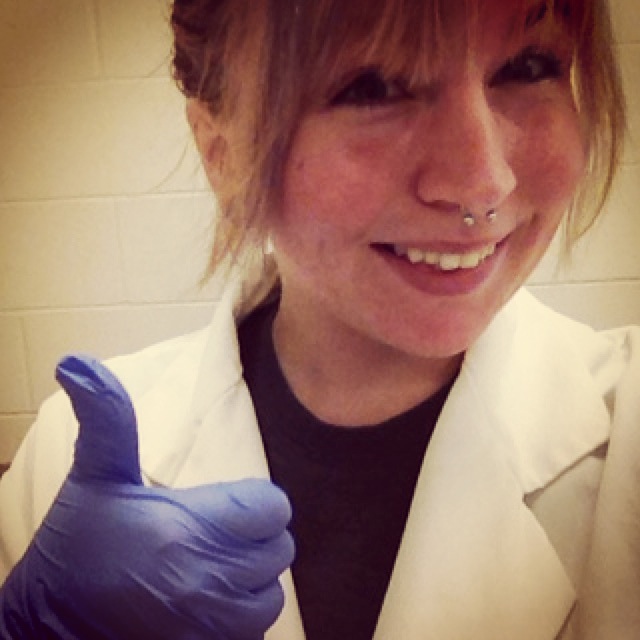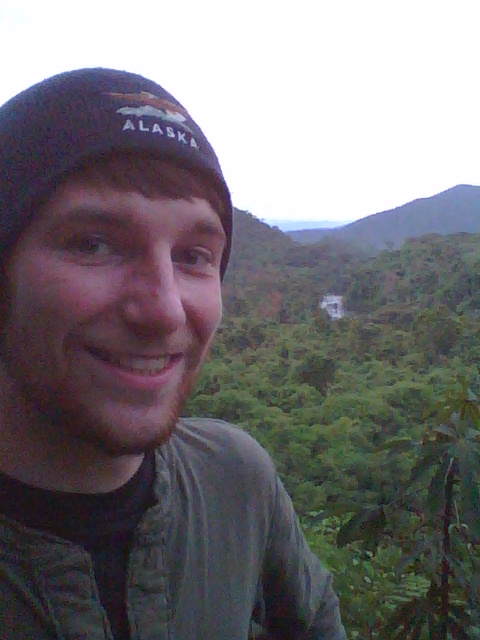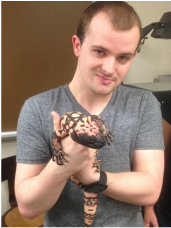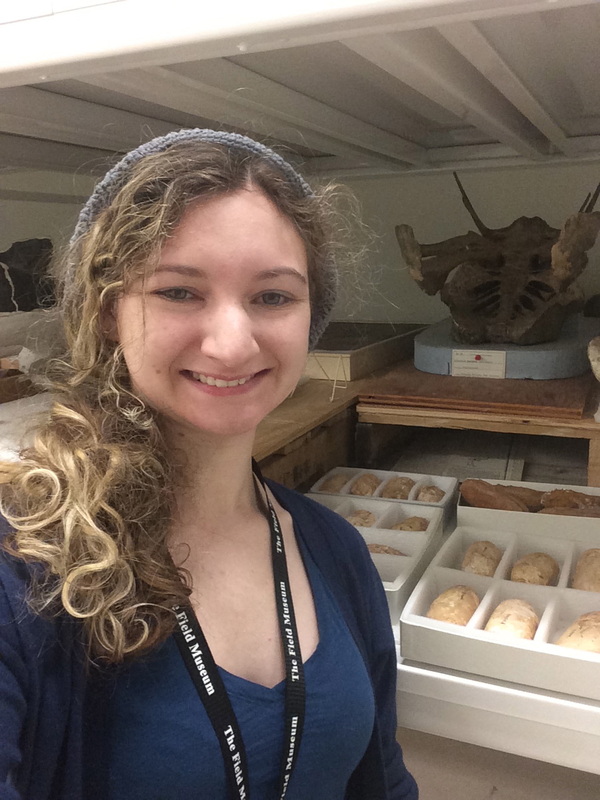Prospective graduate student interested in joining our lab? Check our Contact page
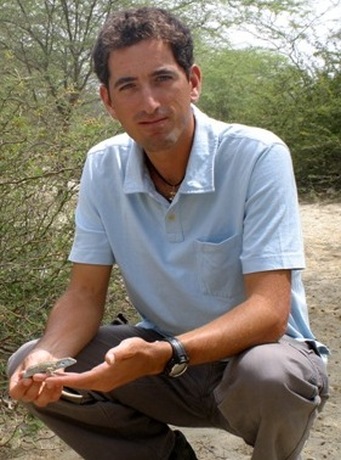
Alessandro Catenazzi, PhD - Associate Professor
My research interests are the systematics and conservation of Neotropical amphibians and reptiles, and the ecological dimensions of biodiversity. I work primarily in the Andes and the Amazon. I collaborate with colleagues in museums and other research institutions in describing new species and developing phylogenies of frogs from the mega-diverse eastern slopes of the Andes. I am interested in using phylogenies as a road map to compare and contrast physiological traits among species, As part of these investigations, my collaborators and I are studying thermal preferences, tolerance to heat, and the influence of temperature on physiological functions, in order to understand how climate warming will affect these animals. Finally, a major theme of my current research is exploring the effects of fungal disease on the ecology of amphibians, a group that is experiencing staggering biodiversity losses worldwide. After documenting the collapse of a species-rich amphibian assemblage, I am interested in developing strategies to mitigate the impact of the fungal disease chytridiomycosis on surviving species. I'm an Amphibian Red List Authority and an Associated Researcher with the Instituto Peruano de Herpetologia and with CORBIDI. I'm the current Half-Earth Chair with the E.O. Wilson Biodiversity Foundation.
Profiles: ResearchGate | Google Scholar | Web of Science | FIU Scholar
My research interests are the systematics and conservation of Neotropical amphibians and reptiles, and the ecological dimensions of biodiversity. I work primarily in the Andes and the Amazon. I collaborate with colleagues in museums and other research institutions in describing new species and developing phylogenies of frogs from the mega-diverse eastern slopes of the Andes. I am interested in using phylogenies as a road map to compare and contrast physiological traits among species, As part of these investigations, my collaborators and I are studying thermal preferences, tolerance to heat, and the influence of temperature on physiological functions, in order to understand how climate warming will affect these animals. Finally, a major theme of my current research is exploring the effects of fungal disease on the ecology of amphibians, a group that is experiencing staggering biodiversity losses worldwide. After documenting the collapse of a species-rich amphibian assemblage, I am interested in developing strategies to mitigate the impact of the fungal disease chytridiomycosis on surviving species. I'm an Amphibian Red List Authority and an Associated Researcher with the Instituto Peruano de Herpetologia and with CORBIDI. I'm the current Half-Earth Chair with the E.O. Wilson Biodiversity Foundation.
Profiles: ResearchGate | Google Scholar | Web of Science | FIU Scholar
Affiliations
Graduate students
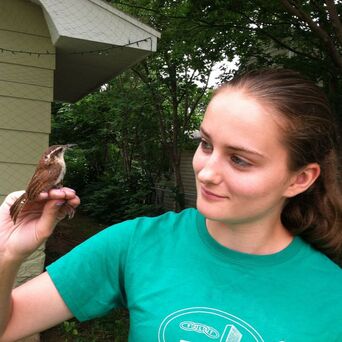
Anne Sabol - PhD (July 2024)
I'm originally from Ohio (Go Bucks, right Rachel??), where I got my Bachelor's degree in Zoology from The Ohio State University. During undergrad I studied cichlid personality and UV vison and participated in an REU at Oklahoma State University, focusing on bluebird nestling ecology. I then got my Master's degree at the University of Michigan in Dr. Ben Dantzer's lab, studying prairie vole sociality. After graduating, I worked for the San Diego Zoo Conservation Research Institute in Hawaii studying the behavior of the highly endangered 'alala (the Hawaiian crow). During this project I realized I wanted to move my research more in a conservation direction, so I am excited to focus on combining conservation and behavior in amphibians for my PhD.
Profiles: ResearchGate | Google Scholar |
I'm originally from Ohio (Go Bucks, right Rachel??), where I got my Bachelor's degree in Zoology from The Ohio State University. During undergrad I studied cichlid personality and UV vison and participated in an REU at Oklahoma State University, focusing on bluebird nestling ecology. I then got my Master's degree at the University of Michigan in Dr. Ben Dantzer's lab, studying prairie vole sociality. After graduating, I worked for the San Diego Zoo Conservation Research Institute in Hawaii studying the behavior of the highly endangered 'alala (the Hawaiian crow). During this project I realized I wanted to move my research more in a conservation direction, so I am excited to focus on combining conservation and behavior in amphibians for my PhD.
Profiles: ResearchGate | Google Scholar |
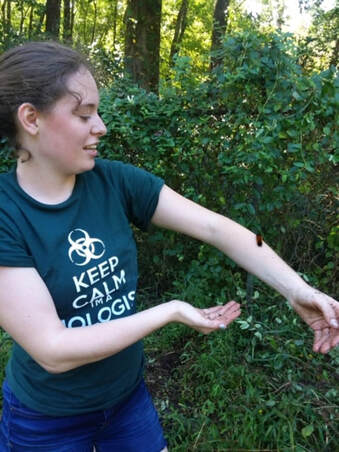
Rachel Prokopius - PhD candidate
I am a life-long Ohio resident, and have lived in two opposite corners of the state. Go Buckeyes (sorry, not sorry, Anne)! I received a Bachelor’s degree in Science with a chemistry minor from Northern Kentucky University, an area containing some of the highest amphibian diversity on the planet. During undergrad my research focused on macroinvertebrate bioenergetics and their contribution to the inner workings of lotic systems, as well as the conservation status of big-game fish in Caribbean waters. My macroinvertebrate research took me to Karlstad, Sweden for six months and factored into my Honors Thesis, which compared macroinvertebrate biomass and attributes between two biomes. I was also able to spend three weeks in Belize comparing presence and size of economically-important marine species between conservation and general-use fishing zones off the Belizean coast. My research interests are not necessarily limited to one group of organisms; I think all animals are freaking awesome! My Ph.D. work focuses on animal behavior and the connection between it and the conservation of various species and populations of organisms. My interests include niche partitioning, intra and interspecific competition and invasive species.
I am a life-long Ohio resident, and have lived in two opposite corners of the state. Go Buckeyes (sorry, not sorry, Anne)! I received a Bachelor’s degree in Science with a chemistry minor from Northern Kentucky University, an area containing some of the highest amphibian diversity on the planet. During undergrad my research focused on macroinvertebrate bioenergetics and their contribution to the inner workings of lotic systems, as well as the conservation status of big-game fish in Caribbean waters. My macroinvertebrate research took me to Karlstad, Sweden for six months and factored into my Honors Thesis, which compared macroinvertebrate biomass and attributes between two biomes. I was also able to spend three weeks in Belize comparing presence and size of economically-important marine species between conservation and general-use fishing zones off the Belizean coast. My research interests are not necessarily limited to one group of organisms; I think all animals are freaking awesome! My Ph.D. work focuses on animal behavior and the connection between it and the conservation of various species and populations of organisms. My interests include niche partitioning, intra and interspecific competition and invasive species.
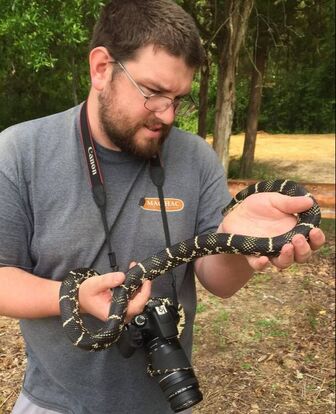
Jon Adamski - PhD candidate
Hey all! I am originally from northeastern Pennsylvania. I went to East Stroudsburg University (ESU), PA while using my GI Bill to pursue my Bachelor of Science in Biology. I conducted minor research while pursuing this degree that focused on exploring the range limits of two rare species, the eastern fence lizard and eastern worm snake, in northeast Pennsylvania. I continued at ESU to pursue my Master under Dr. Thomas LaDuke, where I primarily worked with the timber rattlesnake and ArcMap to measure how anthropogenic habitat features affect population size. Across both degrees I worked on many different projects to gain the most diverse background possible. These projects focused on Hymenoptera pollinators, raptors, songbirds, bats, bears, and many amphibian species. Ultimately, I want nothing more than to be a professor while working on meaningful research. My research interests include herpetology, entomology, conservation, ecology, education, and museum maintenance and preparation. I am studying chytrid transmission among various frog species in Peru as part of an NSF grant within the lab.
Hey all! I am originally from northeastern Pennsylvania. I went to East Stroudsburg University (ESU), PA while using my GI Bill to pursue my Bachelor of Science in Biology. I conducted minor research while pursuing this degree that focused on exploring the range limits of two rare species, the eastern fence lizard and eastern worm snake, in northeast Pennsylvania. I continued at ESU to pursue my Master under Dr. Thomas LaDuke, where I primarily worked with the timber rattlesnake and ArcMap to measure how anthropogenic habitat features affect population size. Across both degrees I worked on many different projects to gain the most diverse background possible. These projects focused on Hymenoptera pollinators, raptors, songbirds, bats, bears, and many amphibian species. Ultimately, I want nothing more than to be a professor while working on meaningful research. My research interests include herpetology, entomology, conservation, ecology, education, and museum maintenance and preparation. I am studying chytrid transmission among various frog species in Peru as part of an NSF grant within the lab.
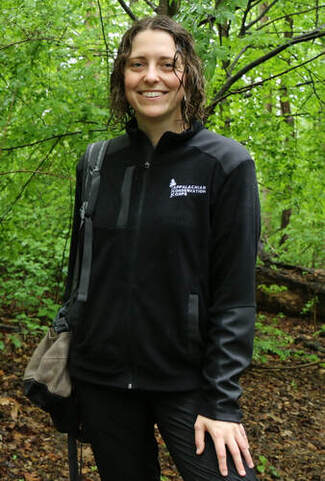
Cara Giordano - PhD candidate
Originally from Virginia, I graduated from the University of Virginia with a bachelor's degree in biology and environmental sciences, with a specialization in conservation. My undergraduate research investigated natural and sexual selection in brown anoles, focusing primarily on the role of secondary sexual characteristics as honest signals of male quality. After graduating, I moved to DC and worked for the National Park Service conducting invasive plant management in the DC metropolitan area. I have research interests in conservation, disease, and evolutionary ecology. I am particularly interested in investigating species responses to environmental changes induced by human activity.
Originally from Virginia, I graduated from the University of Virginia with a bachelor's degree in biology and environmental sciences, with a specialization in conservation. My undergraduate research investigated natural and sexual selection in brown anoles, focusing primarily on the role of secondary sexual characteristics as honest signals of male quality. After graduating, I moved to DC and worked for the National Park Service conducting invasive plant management in the DC metropolitan area. I have research interests in conservation, disease, and evolutionary ecology. I am particularly interested in investigating species responses to environmental changes induced by human activity.
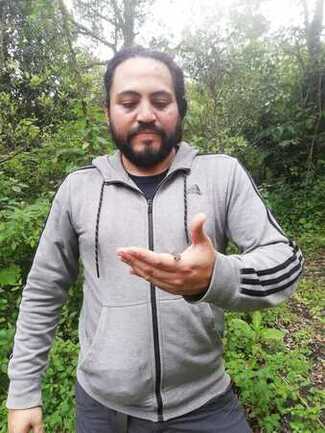
Gustavo Ruano - PhD student
I am a Biologist from Guatemala with an interest in amphibian ecology in the Neotropics. During my undergraduate studies at the Universidad de San Carlos de Guatemala – USAC, I investigated salamanders and bromeliads interaction. After graduating, I was awarded the OAS scholarship to gain a master’s degree in Brazil at the Universidade Federal de Alagoas -UFAL; I researched bromeligenous amphibians and their risk of infection with the chytrid fungus in the Northeastern Atlantic Forest of Brazil. My current research interests are the amphibian microbiome, host-pathogen interactions, and bromeliads micro-ecosystems. Bromeliad tanks are important for amphibians in
the current global change scenario, as environmental refuges from diseases, climatic change, and habitat loss. Understanding amphibian dynamics within this microhabitat could be fundamental for amphibian diversity in a global change scenario.
I am a Biologist from Guatemala with an interest in amphibian ecology in the Neotropics. During my undergraduate studies at the Universidad de San Carlos de Guatemala – USAC, I investigated salamanders and bromeliads interaction. After graduating, I was awarded the OAS scholarship to gain a master’s degree in Brazil at the Universidade Federal de Alagoas -UFAL; I researched bromeligenous amphibians and their risk of infection with the chytrid fungus in the Northeastern Atlantic Forest of Brazil. My current research interests are the amphibian microbiome, host-pathogen interactions, and bromeliads micro-ecosystems. Bromeliad tanks are important for amphibians in
the current global change scenario, as environmental refuges from diseases, climatic change, and habitat loss. Understanding amphibian dynamics within this microhabitat could be fundamental for amphibian diversity in a global change scenario.
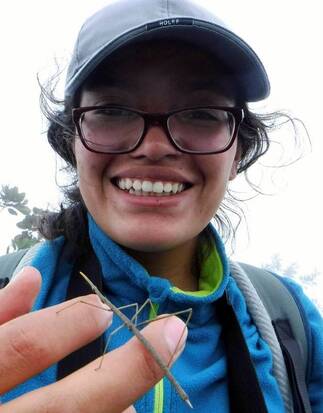
Isabel Diaz - PhD student
I am a native of the city of Cusco, Peru. I studied at the Professional School of Biology of the National University San Antonio Abad of Cusco. I am associated with the Biodiversity Museum of Peru (MUBI). I have participated in multiple projects as a consultant and researcher in diversity, conservation and natural history of the Peruvian Herpetofauna, collaborating in several studies and scientific expeditions with national and international researchers. For my undergraduate thesis I investigated the importance of abiotic factors on the composition, species richness and relative abundance of leaf-litter frogs along an altitudinal gradient in the Amazonian Andes of the Manu National Park, Cusco. My research interests include the ecology, evolution and conservation of amphibians and reptiles.
I am a native of the city of Cusco, Peru. I studied at the Professional School of Biology of the National University San Antonio Abad of Cusco. I am associated with the Biodiversity Museum of Peru (MUBI). I have participated in multiple projects as a consultant and researcher in diversity, conservation and natural history of the Peruvian Herpetofauna, collaborating in several studies and scientific expeditions with national and international researchers. For my undergraduate thesis I investigated the importance of abiotic factors on the composition, species richness and relative abundance of leaf-litter frogs along an altitudinal gradient in the Amazonian Andes of the Manu National Park, Cusco. My research interests include the ecology, evolution and conservation of amphibians and reptiles.
Lab associates
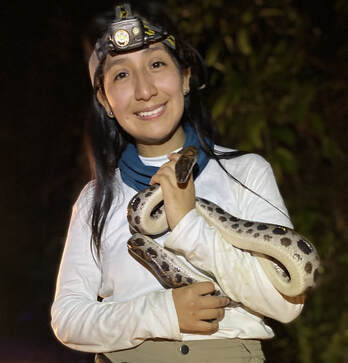
Valia Herrera - MS (March 2024)
I am from Lima, Peru. I am a Master of Science in Zoology with a major in
Systematics and Evolution from the National University of San Marcos. I am a collaborator of the Department of Herpetology, Museum of Natural History. My research for my MS used integrative taxonomy in cryptic species of the Pristimantis danae group to improve species delimitation within this group. For my undergraduate thesis, I worked with trophic ecology in marsupial frogs from the center and southern Peru. Since I graduated as a Biologist in 2014, I have participated as a collaborator with national and international researchers in scientific expeditions, as well as on my projects. Besides, I have been working in environmental consulting all around Peru, with the specialty of herpetofauna. I received financial support from the Peruvian Government to complete my master’s research and from the Museum of Comparative Zoology of Harvard to visit museums in the USA. My current research interests include biogeography, integrative taxonomy, and evolution of amphibians and reptiles.
I am from Lima, Peru. I am a Master of Science in Zoology with a major in
Systematics and Evolution from the National University of San Marcos. I am a collaborator of the Department of Herpetology, Museum of Natural History. My research for my MS used integrative taxonomy in cryptic species of the Pristimantis danae group to improve species delimitation within this group. For my undergraduate thesis, I worked with trophic ecology in marsupial frogs from the center and southern Peru. Since I graduated as a Biologist in 2014, I have participated as a collaborator with national and international researchers in scientific expeditions, as well as on my projects. Besides, I have been working in environmental consulting all around Peru, with the specialty of herpetofauna. I received financial support from the Peruvian Government to complete my master’s research and from the Museum of Comparative Zoology of Harvard to visit museums in the USA. My current research interests include biogeography, integrative taxonomy, and evolution of amphibians and reptiles.
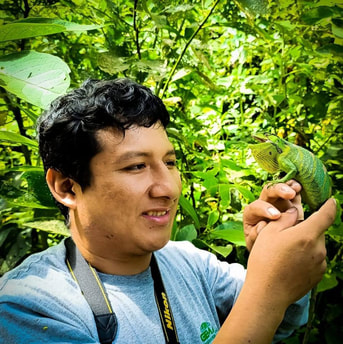
James William Ttito Nina - MS student
Hello everyone! I am originally from the province of La Convención, department of Cusco. I did my undergraduate studies at the Faculty of Biological Sciences of the National University San Antonio Abad del Cusco, currently I am pursuing a Master's degree at the same university. I am affiliated to the Museum of Natural History of the UNSAAC and the CENTRO DE INVESTIGACIÓN VERTEBRATE - CUSCO. I am currently focused on the systematics, ecology and conservation of amphibians and reptiles always in collaboration with the CATENAZZI LAB. I have participated in multiple projects as a consultant and researcher in various coastal and Andean-Amazonian ecosystems of Peru, where he works in monitoring and research, conservation and environmental education projects. He has also formulated and obtained funding for research projects in Herpetofauna in the Historic Sanctuary of Machu Picchu and the Cordillera Azul National Park.
Hello everyone! I am originally from the province of La Convención, department of Cusco. I did my undergraduate studies at the Faculty of Biological Sciences of the National University San Antonio Abad del Cusco, currently I am pursuing a Master's degree at the same university. I am affiliated to the Museum of Natural History of the UNSAAC and the CENTRO DE INVESTIGACIÓN VERTEBRATE - CUSCO. I am currently focused on the systematics, ecology and conservation of amphibians and reptiles always in collaboration with the CATENAZZI LAB. I have participated in multiple projects as a consultant and researcher in various coastal and Andean-Amazonian ecosystems of Peru, where he works in monitoring and research, conservation and environmental education projects. He has also formulated and obtained funding for research projects in Herpetofauna in the Historic Sanctuary of Machu Picchu and the Cordillera Azul National Park.
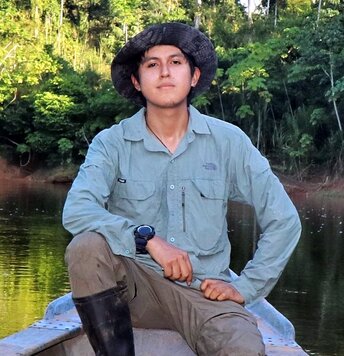
Hamlet Maza - Bachelor in Biology
Bachelor in Biological Sciences, graduated from the professional school of Biology at the National University of San Antonio Abad del Cusco, member of the research group of the Museum of Natural History - UNSAAC. I am currently working on my thesis project on the topics of amphibian ecology, climate change and infection by chytridiomycosis, as well as participating in scientific research projects of amphibians in Manu National Park. I am also conducting studies on amphibians and reptiles in the Andes and Amazon forests of Peru; the opportunities of life allow me to explore the beauty of the landscape and biodiversity of nature both for work and for studies, I really like herpetology and conservation of wildlife.
Bachelor in Biological Sciences, graduated from the professional school of Biology at the National University of San Antonio Abad del Cusco, member of the research group of the Museum of Natural History - UNSAAC. I am currently working on my thesis project on the topics of amphibian ecology, climate change and infection by chytridiomycosis, as well as participating in scientific research projects of amphibians in Manu National Park. I am also conducting studies on amphibians and reptiles in the Andes and Amazon forests of Peru; the opportunities of life allow me to explore the beauty of the landscape and biodiversity of nature both for work and for studies, I really like herpetology and conservation of wildlife.
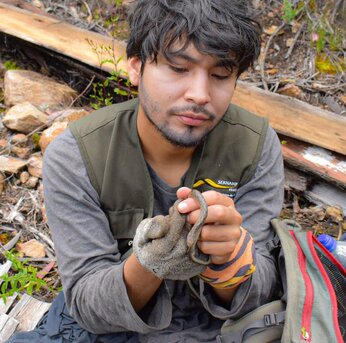
Kevin Rivera - Bachelor in Biology
I'm a biology student at the Universidad Nacional San Cristóbal de Huamanga (UNSCH) in Ayacucho, Peru. During my studies, I specialized in herpetology and worked on projects in different ecosystems in Peru. As an Associate of Profauna Silvestre Ayacucho and collaborator with Conservación Andina, I am committed to the research and conservation of our local biodiversity. Currently, I have started working on my thesis, which will be located in the Relict High Andean Forests of the Historic Sanctuary of the Pampa de Ayacucho . In these ecosystems, which are still relatively understudied at this moment, I will study the diversity of amphibians and reptiles as well as their habitat preferences. In addition, I will research species interactions and the influence of the environment on the distribution of herpetofauna. With my research, I hope to learn more about local species and develop concrete strategies to conserve them
I'm a biology student at the Universidad Nacional San Cristóbal de Huamanga (UNSCH) in Ayacucho, Peru. During my studies, I specialized in herpetology and worked on projects in different ecosystems in Peru. As an Associate of Profauna Silvestre Ayacucho and collaborator with Conservación Andina, I am committed to the research and conservation of our local biodiversity. Currently, I have started working on my thesis, which will be located in the Relict High Andean Forests of the Historic Sanctuary of the Pampa de Ayacucho . In these ecosystems, which are still relatively understudied at this moment, I will study the diversity of amphibians and reptiles as well as their habitat preferences. In addition, I will research species interactions and the influence of the environment on the distribution of herpetofauna. With my research, I hope to learn more about local species and develop concrete strategies to conserve them
BIOLOGY HONORS PROGRAM (2020-2021)
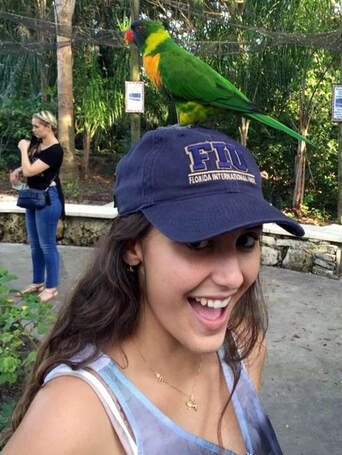
Helena Miranda - Undergraduate student
I am a Biology major with a Chemistry minor at FIU and part of the Biology Honors Program. I aspire to go to medical school and am currently on the Pre-med track, so hopefully I’ll be starting medical school in 2022 after a gap year. I was born and raised in Brazil, in a city named Belo Horizonte, and moved to Miami in 2016. I love living in Miami because I’m always 5 minutes away from the beach and Miami has a constant summer year round.
I am a Biology major with a Chemistry minor at FIU and part of the Biology Honors Program. I aspire to go to medical school and am currently on the Pre-med track, so hopefully I’ll be starting medical school in 2022 after a gap year. I was born and raised in Brazil, in a city named Belo Horizonte, and moved to Miami in 2016. I love living in Miami because I’m always 5 minutes away from the beach and Miami has a constant summer year round.
Undergraduate students (2019-2020)
UNDERGRADUATE STUDENTS (2018-2019)
|
Daniela Oyola
I’m an international student majoring in Biology at FIU with the desire to pursue a career in the optometry field. I was born in Cartagena, Colombia and came to the FIU three years ago to get my educational degrees. As a biology student I became very interested in research at the molecular and cellular level. So far the lab has and will continue to help me gain knowledge and experience in PCR, DNA extraction and preparation of gels for gel electrophoresis. As of my hobbies, I enjoy reading, photography, exercising, and movies. |
Quinn Simpson
I hail from the northernmost, westernmost, easternmost, largest, and greatest state in America, Alaska. In 2014 I moved to Miami for taekwondo and am currently a senior at FIU perusing a B.S in Biology, following a pre-med track. It is my second semester as an undergraduate researcher in the Catenazzi lab, where I have primarily been acting as a research assistant and helping Alex and Dr. Catenazzi with their amphibian research on Bd and Enrico with his salmonella infection on freshwater turtles. I hope to carry out future research examining the immunological effects of different peptides produced by frogs in combating Bd, using CRISPR gene editing technology. |
FORMER graduate STUDENTS
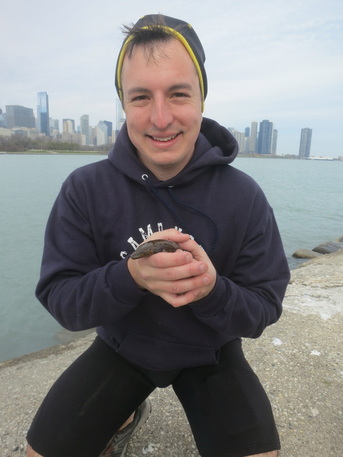
Dr. Alex Shepack - PhD (Fall 2020)
I hail from the land of Dunkin Donuts and traffic circles, the greatest state in the Union, Connecticut (sorry David). I recently finished my Masters in Environmental Science from the Yale School of Forestry and Environmental Studies examining the effect of urbanization on amphibian populations (w/ David Skelly). Prior to that I worked on oviposition site choice in gray tree frogs at the University of Connecticut (w/ Mark Urban). Since 2008 I’ve been working in Costa Rica with the Forman School Rainforest Project, a high school group focusing on biological monitoring. At FIU i’m excited to return to the Neotropics to work on my PhD. I’ll be studying amphibian community composition and rebounding populations in Bd enzootic areas. I’ll be focusing on the dynamics and genetic structure of rebounding populations, causes for rebounds and overall community structure changes since the declines began. For more info on my current or past research check out my website!
Profiles: ResearchGate | Google Scholar |
Now Post-doc at the University of Notre Dame
I hail from the land of Dunkin Donuts and traffic circles, the greatest state in the Union, Connecticut (sorry David). I recently finished my Masters in Environmental Science from the Yale School of Forestry and Environmental Studies examining the effect of urbanization on amphibian populations (w/ David Skelly). Prior to that I worked on oviposition site choice in gray tree frogs at the University of Connecticut (w/ Mark Urban). Since 2008 I’ve been working in Costa Rica with the Forman School Rainforest Project, a high school group focusing on biological monitoring. At FIU i’m excited to return to the Neotropics to work on my PhD. I’ll be studying amphibian community composition and rebounding populations in Bd enzootic areas. I’ll be focusing on the dynamics and genetic structure of rebounding populations, causes for rebounds and overall community structure changes since the declines began. For more info on my current or past research check out my website!
Profiles: ResearchGate | Google Scholar |
Now Post-doc at the University of Notre Dame
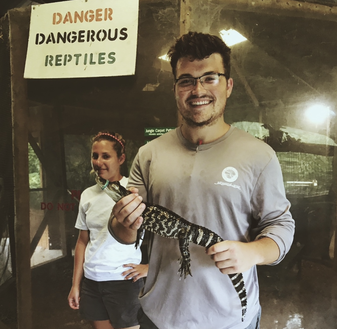
Matt Morris - MS (Summer 2021)
I hail from the land of chicken wings and seasonal depression, the intellectual nucleus of the United States: Buffalo, New York. In 2014, I moved from sumptuous Buffalo to St. Petersburg, Florida where I obtained my B.S in biology from Eckerd College. I now am a second semester master’s student in the lab. During my time in the Catenazzi lab, I will be working with the critically endangered Florida Grasshopper Sparrow, specifically, researching the disease aspects of their recovery program. Read more about sparrow research here.
I hail from the land of chicken wings and seasonal depression, the intellectual nucleus of the United States: Buffalo, New York. In 2014, I moved from sumptuous Buffalo to St. Petersburg, Florida where I obtained my B.S in biology from Eckerd College. I now am a second semester master’s student in the lab. During my time in the Catenazzi lab, I will be working with the critically endangered Florida Grasshopper Sparrow, specifically, researching the disease aspects of their recovery program. Read more about sparrow research here.
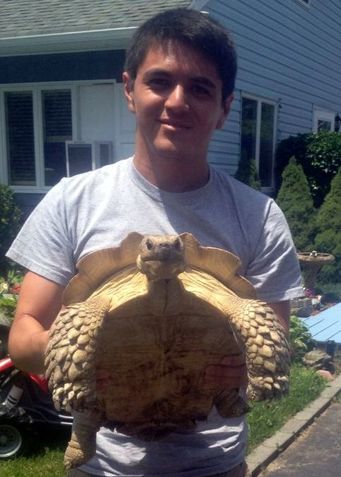
Andrew Rubio - MS (April 2019, SIUC)
I attended SUNY Oswego for my undergraduate, obtaining a Bachelor of Science in Zoology. My ultimate goal is to utilize the knowledge I receive throughout my education and carry out research projects that will contribute to the conservation and management of endangered species. I am especially interested in the conservation of Neotropical amphibians. At Southern Illinois university, I aspire to better understand the effects that chytridiomycosis has had and continues to have on amphibians. I am also interest in how ecosystems are altered due to the reduction of amphibian diversity. I am hoping that my research here will pave way in developing adequate conservation plans that will help conserve and reduce the loss of amphibian diversity.
Now PhD student in Kyle Summers lab at ECU
I attended SUNY Oswego for my undergraduate, obtaining a Bachelor of Science in Zoology. My ultimate goal is to utilize the knowledge I receive throughout my education and carry out research projects that will contribute to the conservation and management of endangered species. I am especially interested in the conservation of Neotropical amphibians. At Southern Illinois university, I aspire to better understand the effects that chytridiomycosis has had and continues to have on amphibians. I am also interest in how ecosystems are altered due to the reduction of amphibian diversity. I am hoping that my research here will pave way in developing adequate conservation plans that will help conserve and reduce the loss of amphibian diversity.
Now PhD student in Kyle Summers lab at ECU
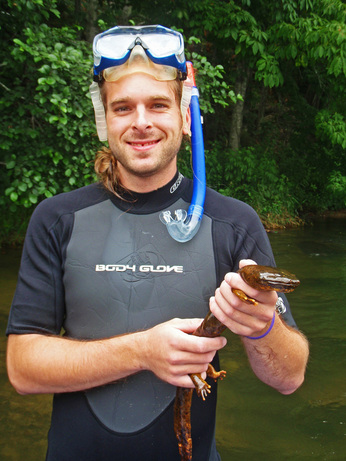
David Burkart - MS (December 2015, SIUC)
I come from North Carolina, home of everything great and wonderful from Krispy Kreme donuts to the world's highest salamander diversity. Luckily it was the latter, not the former, that caught my interest during my formative years and inspired my passion for nature, particularly, herpetology. I received my B.S. in Biological Sciences from N.C. State University. Following my graduation, I pursued varied dreams by conducting field work in both the southeast and South America in between touring the United States in a rock and roll band. My interests in both herpetology and conservation channeled my pursuits towards studying chytridiomycosis, eventually leading me to the Catenazzi lab at SIU. Here I have focused my efforts on the natural methods that make frogs resistant to the disease and how these can be applied towards mitigation strategies. In particular, I am investigating why two closely related species of marsupial frog differ in their response to chytridiomycosis - one is resistant and one susceptible. Using analytical techniques like mass spectrometry and next generation DNA sequencing, I identified the compositions of each species' antimicrobial peptides and cutaneous bacterial symbionts, two amphibian defense mechanisms that have been linked to chytridiomycosis resistance.
Now a Biology Instructor at Montgomery College
I come from North Carolina, home of everything great and wonderful from Krispy Kreme donuts to the world's highest salamander diversity. Luckily it was the latter, not the former, that caught my interest during my formative years and inspired my passion for nature, particularly, herpetology. I received my B.S. in Biological Sciences from N.C. State University. Following my graduation, I pursued varied dreams by conducting field work in both the southeast and South America in between touring the United States in a rock and roll band. My interests in both herpetology and conservation channeled my pursuits towards studying chytridiomycosis, eventually leading me to the Catenazzi lab at SIU. Here I have focused my efforts on the natural methods that make frogs resistant to the disease and how these can be applied towards mitigation strategies. In particular, I am investigating why two closely related species of marsupial frog differ in their response to chytridiomycosis - one is resistant and one susceptible. Using analytical techniques like mass spectrometry and next generation DNA sequencing, I identified the compositions of each species' antimicrobial peptides and cutaneous bacterial symbionts, two amphibian defense mechanisms that have been linked to chytridiomycosis resistance.
Now a Biology Instructor at Montgomery College
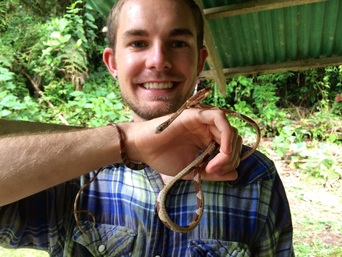
Brandon LaBumbard - MS (December 2015, SIUC)
I am from a small town north of New York City in the beautiful Catskill Mountains. I attended SUNY Oswego for my undergraduate and graduated in 2012 with a BS in Zoology and a minor in Chemistry. I enjoy researching amphibians and turtle conservation. I am now a Master’s student in the Catenazzi Lab at SIUC working on amphibian decline in Peru caused by the pathogenic chytrid fungus, Bd. The research I conduct focuses on community effects and species roles in the transmission of Bd.
Brandond went on to receive a PhD in Doug Woodhams lab at UMASS Boston.
FOrmer visiting scholars
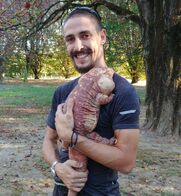
Enrico Vezzani - Researcher (University of Modena)
I come directly from Italy where I got my bachelor in Natural Science, at the University of Modena and Reggio Emilia. I always had a deep passion for reptiles and amphibians and my goal is to be involved in reptile conservation and management. I started my adventure here in Florida assisting James Stroud in his research on Anoles and later on I volunteered at ZooMiami. Right now I’m primarily helping Catenazzi in his research on Bd, while I also carry out some personal projects, like salmonella infection on freshwater turtles.
I come directly from Italy where I got my bachelor in Natural Science, at the University of Modena and Reggio Emilia. I always had a deep passion for reptiles and amphibians and my goal is to be involved in reptile conservation and management. I started my adventure here in Florida assisting James Stroud in his research on Anoles and later on I volunteered at ZooMiami. Right now I’m primarily helping Catenazzi in his research on Bd, while I also carry out some personal projects, like salmonella infection on freshwater turtles.
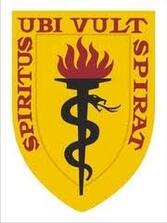
Nicolas Delgado - Undergraduate student (Universidad Cayetano Heredia)
Nicolas visited our lab in October 2019 to investigate how a anti-Bd bacteria inhibits growth of the chytrid fungus.
Nicolas visited our lab in October 2019 to investigate how a anti-Bd bacteria inhibits growth of the chytrid fungus.
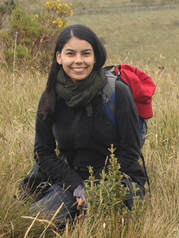
Lina Agredo - Undergraduate student (Icesi University)
I am a Biologist with emphasis in Molecular Biology and Biotechnology from Icesi University located in Cali, Colombia. My research interests are Animal Physiology and Molecular Biology. I participated in a project that studied mechanisms of neuroprotection against ischemia, which later on became my undergrad thesis. I undertook the study of hypoxic pre-conditioning in cerebral primary cultures, learned various procedures and techniques such as MTT cell viability assay, immunofluorescence and immunocytochemistry. Although my projects have mainly focused on Lab related work, I am also interested in (and love) field work. I participated in the 2016 international Bird Fair of Colombia and have a general interest in Conservation and Ecology, specifically in Amphibians and diseases, which led me to the Catenazzi Lab. I analyzed measurements of field body temperatures during summer 2018.
I am a Biologist with emphasis in Molecular Biology and Biotechnology from Icesi University located in Cali, Colombia. My research interests are Animal Physiology and Molecular Biology. I participated in a project that studied mechanisms of neuroprotection against ischemia, which later on became my undergrad thesis. I undertook the study of hypoxic pre-conditioning in cerebral primary cultures, learned various procedures and techniques such as MTT cell viability assay, immunofluorescence and immunocytochemistry. Although my projects have mainly focused on Lab related work, I am also interested in (and love) field work. I participated in the 2016 international Bird Fair of Colombia and have a general interest in Conservation and Ecology, specifically in Amphibians and diseases, which led me to the Catenazzi Lab. I analyzed measurements of field body temperatures during summer 2018.
SIUC Creative and Scholarly Saluki Rookies Program 2016/2017
|
Chris Smaga
Chris is an undergraduate student at SIUC and he investigates the taxonomy of an enigmatic Andean snake. He is the president of the SIU Herpetology Club (SIU Herpetology Enthusiasts of Southern Illinois, of which David Burkart was first president and co-founder). Now Master student at the University of Georgia |
UNDERGRADUATE RESEARCHERS 2016/2017 (SIUC)
|
Nate Hooven
I am from Lindenhurst, Illinois and I am pursuing a BS in Zoology, Wildlife Biology track. I have been involved with research on recent amphibian declines due to chytridiomycosis infection using quantitative PCR. I'm interested in the ecology and management of mammals. Now Master student at The University of Kentucky. |
Joseph Townsend
Joseph has conducted research in the lab investigating symbiotic skin bacteria in frogs. Specifically, he has assisted with 16S sequencing and identification of bacterial strains from DNA extracted from skin swabs of tropical frogs. Now in Vet school at St. George's University. |
UNDERGRADUATE RESEARCHERS 2015/2016 (SIUC)
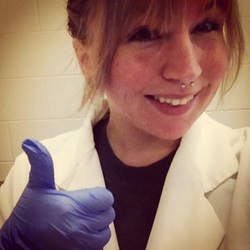
Shannon McQueen
I'm a senior in the animal biology track for zoology. As an undergraduate assistant in the lab, I have been involved in a variety of projects including preparing samples for stable isotope ratio mass spectrometry, PCR and real time PCR, and peptide quantification. |
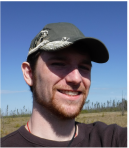
Dan Sears
I am a third year student pursuing a bachelor’s degree in zoology with a specialization in wildlife biology and conservation and a minor in environmental studies. Currently, I serve as a volunteer undergraduate assistant, aiding in PCR processing and other ongoing projects. In the future, I plan on seeking a career in wildlife conservation. |

Megan Colburn
I am a junior majoring in zoology, and I hope to go to veterinary school when I graduate. In veterinary school, I hope to specialize mainly in reptiles. In my free time I like to play guitar and ukelele, play video games, and spend time outside. While working in lab, I prepare plates for PCR and microBCA, as well as enter data. |

Sana Khan
I am a freshman and a Physiology major on the Pre-Medicine track. In the past, I was involved with the IJAS Science Fair, and I researched the effects of spices on the growth if E. coli. I love going to new places and taking pictures throughout my travels, and I one day hope to visit all 50 states. In the lab you can find me preparing plates for PCR. |

Isaac Harris
I am a freshman hailing from Carbondale pursuing my degree in zoology and a minor in environmental studies. I hope that when I finish with school, I am able to pursue a career in park and recreation management. I enjoy being in nature, taking photographs, and playing basketball. While working in the lab I am normally preparing plates for PCR. |
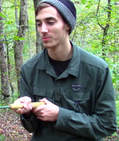
Nathan Hooven
I am from Lindenhurst, Illinois and I am pursuing a BS in Zoology, Wildlife Biology track. I have been involved with research on recent amphibian declines due to chytridiomycosis infection using quantitative PCR. I'm interested in the ecology and management of mammals. Now Master student at The University of Kentucky. |
Undergraduate researchers 2014/2015 (SIUC)
|
Shannon McQueen
I'm a junior in the animal biology track for zoology. My favorite animal is the polar bear,Ursus maritimus. As an undergraduate assistant in the lab, I have been involved in a variety of projects including preparing samples for stable isotope ratio mass spectrometry, PCR and real time PCR, and peptide quantification. I am also starting to work on a collaborative project between the Catenazzi and Fisher labs involving mammalian cell tissue cultures and toxicity assays. |
Dan Sears
I am currently a second year student working towards a Science Degree in Zoology with a specialization in Wildlife Biology and Conservation and a minor in Environmental Studies. It should not be a surprise that wildlife conservation is a field I find particularly interesting and hope to pursue in the future through graduate studies. As an undergraduate assistant, I mainly aid in prepping Bd swab samples for PCR. Also, I have helped with David Burkart's microBCA assay for his graduate work and inputted the Peruvian sample data in a spreadsheet. |
Cody English
I'm a volunteer undergraduate assistant. I assist with PCR analysis and any other areas where help is needed in the lab. I major in zoology and would like to pursue a career in conservation. |
Julie Driebergen
I'm a junior in Zoology and Geology with a minor in Creative Writing and I am also the president of the SIUC Chapter of the Wildlife Society and Zoology Club. For graduate school, I hope to study paleontology pertaining to early amphibians or early mammals/synapsids. In the lab, I help with PCR and I listen to recorded audio for frog calls. |
Megan Colburn
I am a sophomore majoring in zoology, and I hope to go to veterinary school when I graduate. In veterinary school, I hope to specialize mainly in reptiles. In my free time I like to play guitar and ukelele, play video games, and spend time outside. While working in lab, I prepare plates for PCR and microBCA, as well as enter data. |
